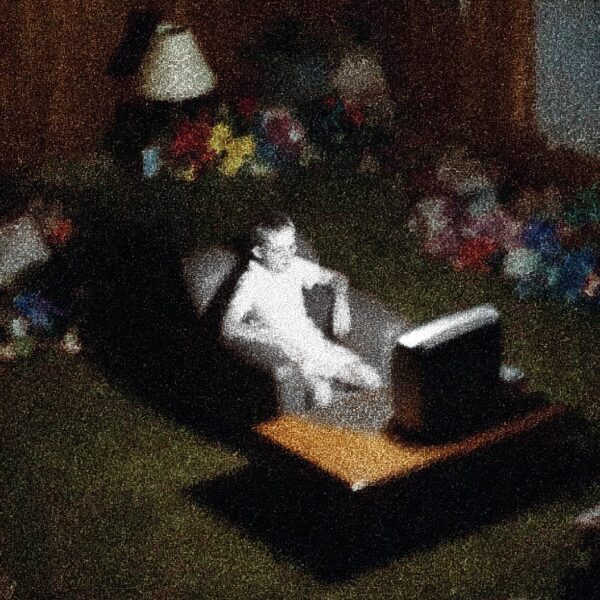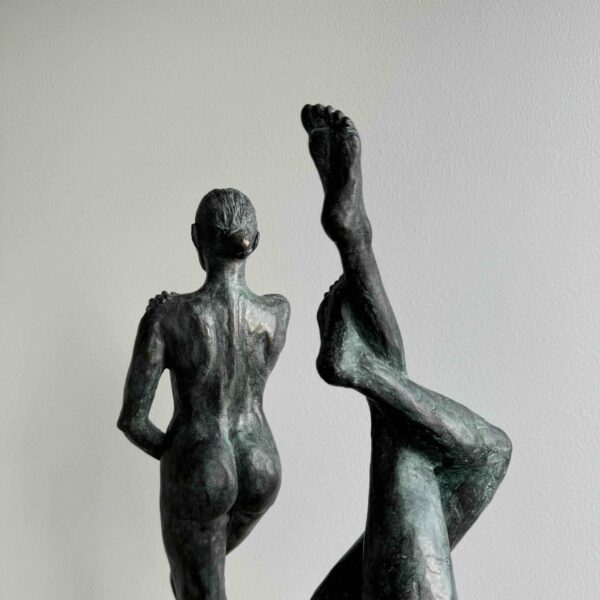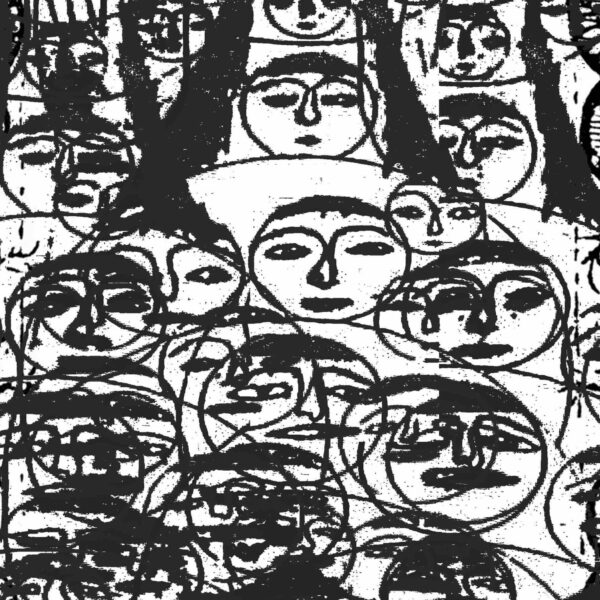Xer0x on Creating ‘Aaron’s Law’ and Honoring the Memory of Aaron Swartz
Xer0x is an artist and a social hacker who is known for his dark, retro-futuristic, glitch work. He created a piece called “Aaron’s Law” honoring the memory of Aaron Swartz, with all proceeds to benefit Creative Commons. Aaron Swartz was a revolutionary American programmer, entrepreneur, and Internet hacktivist. In this interview, we dive into Xer0x’s beliefs about artist freedom, his censored beginnings, his desire to honor Aaron’s memory, and his hope for a future with plentiful accessible art and information. Please note, this conversation has been edited for brevity and clarity.
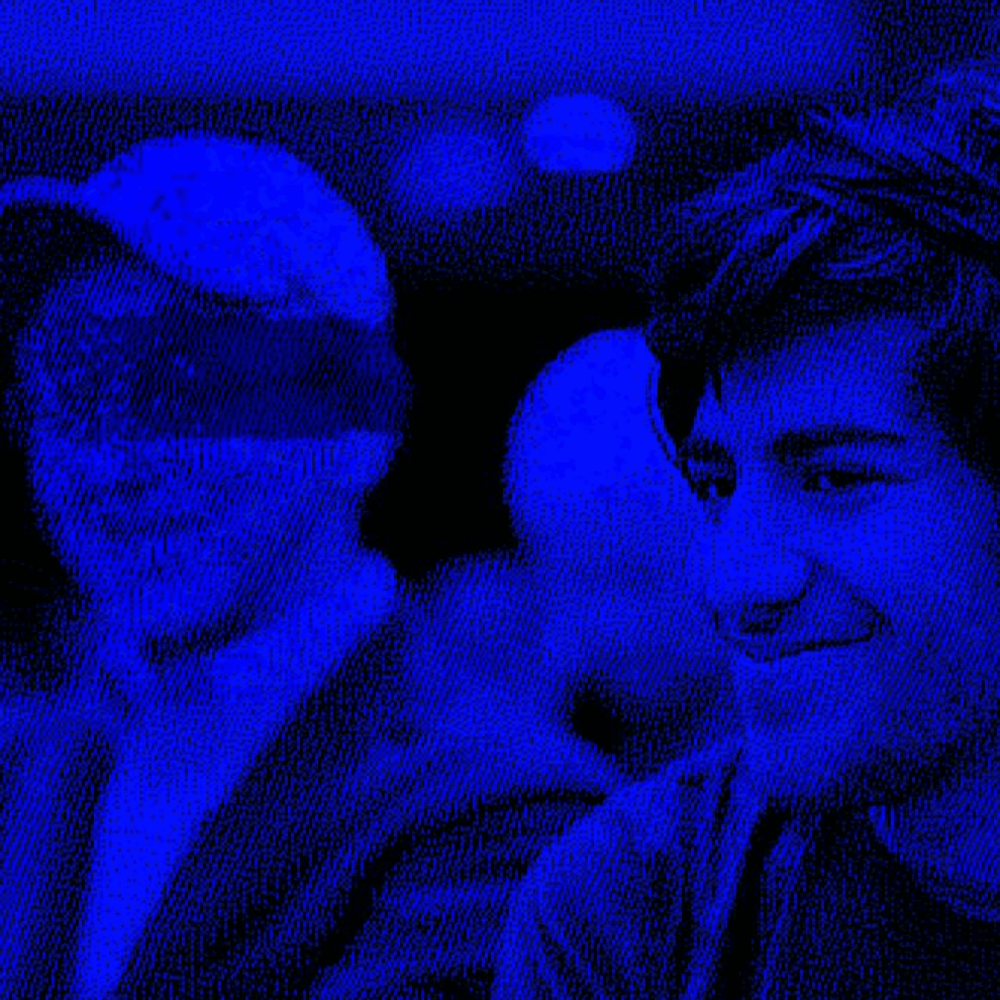
Where did you grow up? Were you exposed to art as a child?
Xer0x: I was born in Iran and I spent my youth there. There really aren’t many countries in the world that are as censored as Iran, as I’m sure the current news has made clear to everyone. Just to give you an idea, when I was a kid, in order to see a movie that was released, it had to be pirated right away. There were no movie stores or rental places, all of the content that was made publicly was heavily censored. So what you’d do is you’d call up someone, and I swear to God it was like a drug deal. This guy would show up to your place with a suitcase, and in the suitcase there were a bunch of VHS tapes. You’d basically rent the video from this person and they come and pick it up later. It was such a lucrative business because there was no access, that they would even set up handy cams in movie theaters so they could pirate the newest content. You’d be watching something on your living room screen, and some guy would stand up and walk out of the movie theater as you’re watching the movie. So it was… bad.
How has censorship changed how you create and think about art?
Xer0x: Well, things changed once the satellite was introduced as a general technology. The government, in order to fight us being able to access foreign content, the news, and this information, they would set up machines that would emit RF radiation. They would blast the city with another signal to distort the satellite signal. In terms of the forms of censorship, it ranged from propagandist textbooks to what I just described: the cancer causing radiation in order to stop us from being able to access everything. What disrupted the state’s censorship was the internet, it is what completely flipped censorship on its head. It’s almost impossible for them to censor because you just run a proxy. I’m really close to a lot of Iranian artists, like C3 who’s a prominent artist in this space. He’s a good friend of mine, I’ve collaborated with him. This is a very personal topic for us, this idea of censorship. We know how fragile this freedom is. Again, the history of Iran is, there was a revolution in ’79, but before that, it was a fairly free monarchy and everyone was on the beach with bathing suits and nice and comfy. Now, it’s an Islamic dictatorship. We know how quickly things can change. So this is a topic that is very near and dear to our hearts.
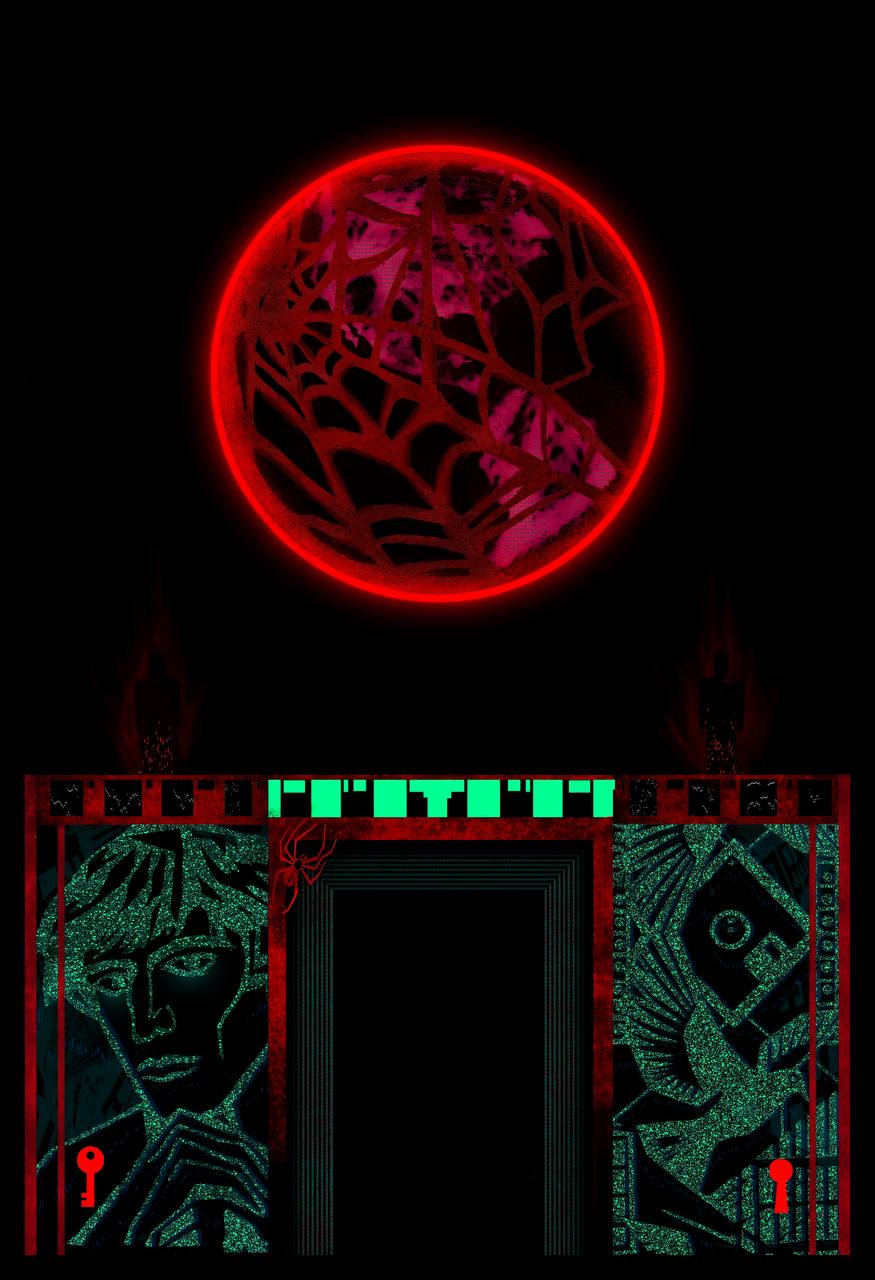
Aaron Swartz is, as far as I'm concerned, probably the single greatest hero, as it pertains to IP, access to information, and the internet itself, literally.
Q: Who is someone that changed your view on censorship?
Xer0x: Aaron Swartz is, as far as I’m concerned, probably the single greatest hero, as it pertains to IP, access to information, and the internet itself, literally. There’s even a documentary about him, called The Internet’s Own Boy. If there was one person we could point to and say, “This person really understood and cared for the internet and wanted to protect it, wanted to protect the free internet” it would be Aaron. He gave his life for that cause. When he was 14, he helped create RSS, which was a way for people to basically follow websites and get updated information and content, and as a means of accessing information. He revolutionized everything, as far as information access goes. He had a huge impact on things, like how people access the news, which is a pretty amazing, seismic thing to be accomplished at the age of 13-14. By the time he was 15, he basically created the architecture and was a critical part of the Creative Commons organization itself. When you hear the term CC0 in the space, one of the people we need to thank is Aaron.
Q: Can you talk about that organization a little bit?
Xer0x: Creative Commons is a nonprofit organization. Before it existed, people could, in very difficult terms say, “Hey, by the way, you can use my content freely.” Aaron and his colleagues helped to establish an actual standard, he was just 15 years old, and drastically changed the nature of global intellectual property. That is just, again, a fascinating, incredible thing. I think that this person should be hugely celebrated. I think he should be a huge celebrity figure that’s all over the history books. You have to understand that art, culture, literature, science, and information are all governed by licensing. They’re all accessed through the internet, nowadays. We digest this stuff all through the internet. Aaron was one of the founding members of Reddit. He was a millionaire by the age of 19. But he didn’t actually care much about that and he lived in a way that demonstrated he didn’t care. The fact that he was rich was a side note because he wanted to have a huge impact on the world. So instead of starting and selling a new startup and raising capital, he becomes a really hardcore activist. He successfully shot down multiple bills that the government was trying to pass to tighten its grip on freedom of information. He did it through different organizations that he founded and demonstrations that he organized.
Q: Your newest piece is about him. In what ways did he affect your mindset or understanding of freedom of information?
Xer0x: His story, really, the way it ends, is so painful for anyone that cares about this topic. I’m sure at college or university, you must have experienced or seen JSTOR. If you want to write a paper or an essay and you want to research it, you’d go on JSTOR, which is a research portal. The universities usually pay for that, but if you’re a member of the public and you’re not a part of the university system, you have to pay per article. That’s all over the world, the developing world, you could be in South America and Africa, Central or East Asia, you’re paying to access that information. The issue that Aaron saw was that taxpayers were paying for those articles. The actual works that were on JSTOR were publicly funded, and yet the public had to pay for them after the fact. So there was what we call a paywall that was in between what the public paid for and what the public could access. He kept on advocating against this. He ultimately used a program that he set up to download the database of all these articles. And that was it, it was just downloaded. JSTOR tipped off MIT police and before anyone knew what was going on, they tossed Aaron into solitary confinement. After being released from solitary, the federal government charged him with 13 felony counts and he faced what was then a maximum sentence of 35 years if found guilty of their ridiculous charges. He didn’t distribute what he downloaded, he didn’t try and sell what he downloaded, he didn’t try and leak what he downloaded, he just downloaded it. At the age of 26, he committed suicide by hanging himself. Imagine such a tremendous asset to humanity – just like that….gone. He was a huge advocate of people being able to take information and use it to solve humanity’s biggest problems. So he was like, “If we’re going to solve the problems that we have, people should be able to access information. And if artists are supposed to create beautiful things, they shouldn’t be worried about what they can or can’t use.” And I share that belief. I think a lot of people in Web3 do too.
He wanted everyone to access information, because he thought the solutions to the world’s greatest problems would emerge from anywhere.
Q: On that point of there’s debate over whether or not there was even a crime, what was the public reception to everything?
Xer0x: I don’t think he was happy with the public associating him with this incident. He actually went out of his way not to talk about it. He was otherwise a very loud voice, but when it came to this incident, following this incident, he didn’t bring any attention to it on purpose. He was really, really quiet until he actually committed suicide, at which point it was public rage and anger, and a lot of people, especially people that were really connected with technology companies and whatnot, really being, “What the hell just happened?” Because they knew they had lost a very important leader.
Q: Can you talk a little bit about both personally and globally, why are you so currently invested in Aaron’s story? Why does this resonate so deeply right now?
Xer0x: It’s not really just a nationality thing, but Syrians, Iranians, Chinese people, there are different races and nationalities right now that get delisted from marketplaces like OpenSea, by virtue of them being in a certain country..well that’s really problematic. Obviously this has to do with fear of various types of sanctions and whatnot, but when it comes to access, to be able to access certain things, that’s an issue. That type of censorship, again, is something that Aaron and his legacy was against. Beauty that is being created by the most talented creators of the world should be shared with everyone. He couldn’t care less where they were located. He wanted everyone to access information, because he thought the solutions to the world’s greatest problems would emerge from anywhere. For the NFT world, every artist in the world should be given the right or the ability to share their creations online. In my view, if you’re not behind that, you’re not about the art. Aaron, again, is an example of someone who literally gave his life to stand by those ideals. I think as a bare minimum, people should be vocal about it. And when they’re vocal about it, great things happen.
Q: Aaron is a phenomenal example of being both the individual champion that rallies everyone around him for all the causes that he believes in, as well as an integral part of a collective. How did his work alter your belief systems?
Xer0x: Everyone in this space, to some extent, holds the keys to their own future happiness. People will rally behind any voice that is true and honest. Not to preach poetics here but mindlessly following the herd will lead you straight to the slaughterhouse and being a black sheep isn’t half as bad as people think it is.
Everyone in this space, to some extent, holds the keys to their own future happiness.
Q: I wanted to talk a little bit about the individual piece itself. In terms of the style and the themes, is there anything you can tell me about the piece and how you created it? What’s meant by it individually?
Xer0x: In terms of the piece itself, it features Aaron. I tried to capture the weight that he held, the weight of the world. I want the piece to have its own I gravity and its own weight, which is a challenging idea. My biggest goal really with the piece is to just highlight Aaron in his glory – as a thinker and hacktivist. And to have those who gatekeep our access to the world’s information to be….well…little men in comparison to Aaron. I wanted the gatekeepers to burn and so I set them ablaze. I’m a sucker for visual metaphors. It’s all about giving props to somebody who’s positively impacted the world. My style has been gravitating more and more towards turn-of-the century aesthetics. A lot of people look at my work and it reminds them of Metropolis, it reminds them of the Art Deco movement. I like that time period a lot, the early Industrial Revolution, because there was so much hope and promise for the future of humanity. It was like, “Oh my God, we can see the whole world and everything is going to be okay.” I like the optimism of this style.
Q; Is there something specific you’d like to accomplish with this piece?
Xer0x: I want to honor the memory of Aaron. I think he will be remembered properly over time. One day, this topic will come to a boiling point. I feel like we’re already heading in that direction, as we keep getting a more and more closed internet and these ecosystems that are intentionally designed to be closed, like Meta, like Twitter, and to try and keep everyone, hoard users and not get them out of the bubble, I think it will reach a boiling point. And at that time, that’s when Aaron’s name will reappear. This is my prophecy of what I think is going to happen and I really believe it.
Q: It’s an incredible story and I commend you for keeping it alive in your own way, with your own twist and your own fingerprints on it, as it has touched you. What are your hopes for the reception of this piece? What do you hope people take away from it?
Xer0x: Everyone in this space, to some extent, holds the keys to their own future happiness. If someone’s trying to take away your right to mint because of your ethnicity or your nationality, or someone is trying to de-list your NFT because you used some image, whatever, you know what I mean? If you’re not going to fight for it or you’re not going to fight for another artist’s right to be able to do these things, then you’ll never have the right yourself. It’ll be taken away from you, and it’ll be monetized. There’s no other way around it. Either you’re going to argue about it, or everything will just turn into a monetization scheme, basically. That’s obvious, but it’s something I like to remind myself of often. We’re lucky that people with voices like theirs and platforms like theirs are still pushing these ideas out there, sometimes to their own detriments.
